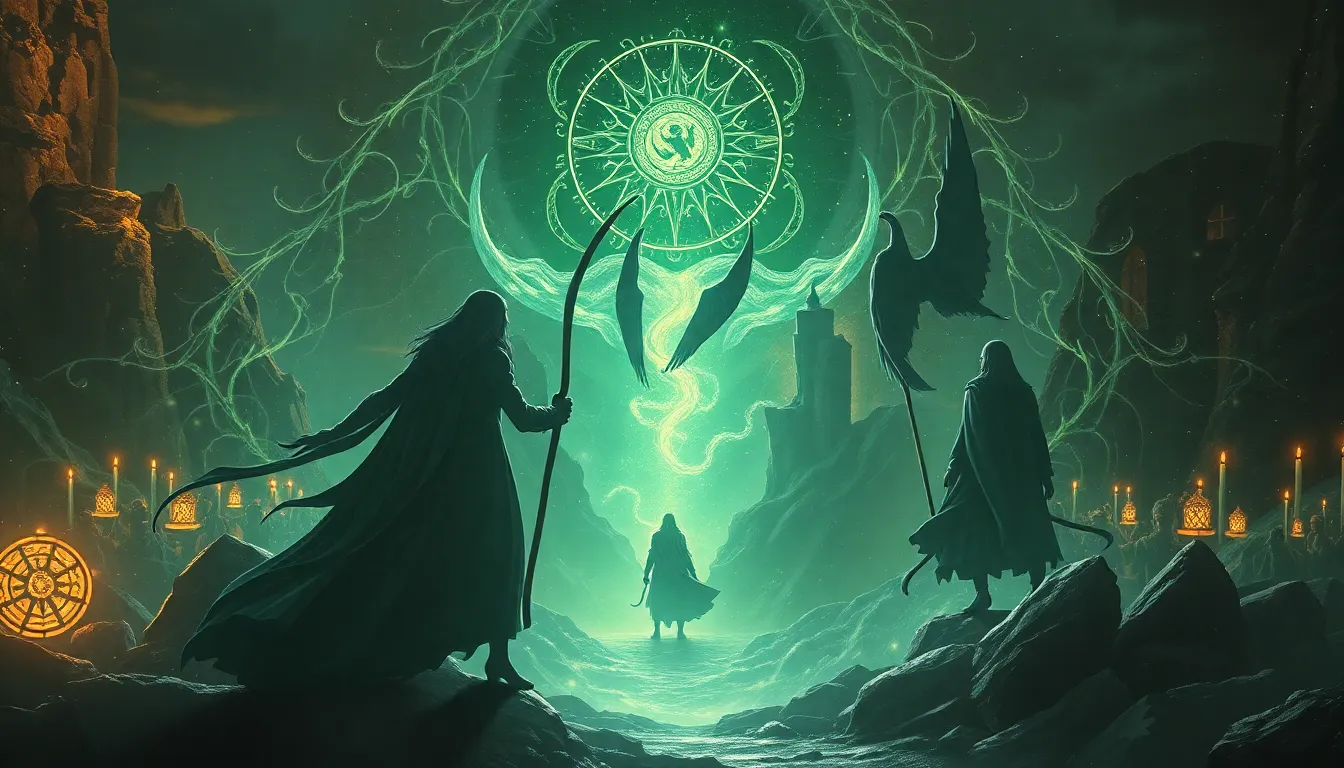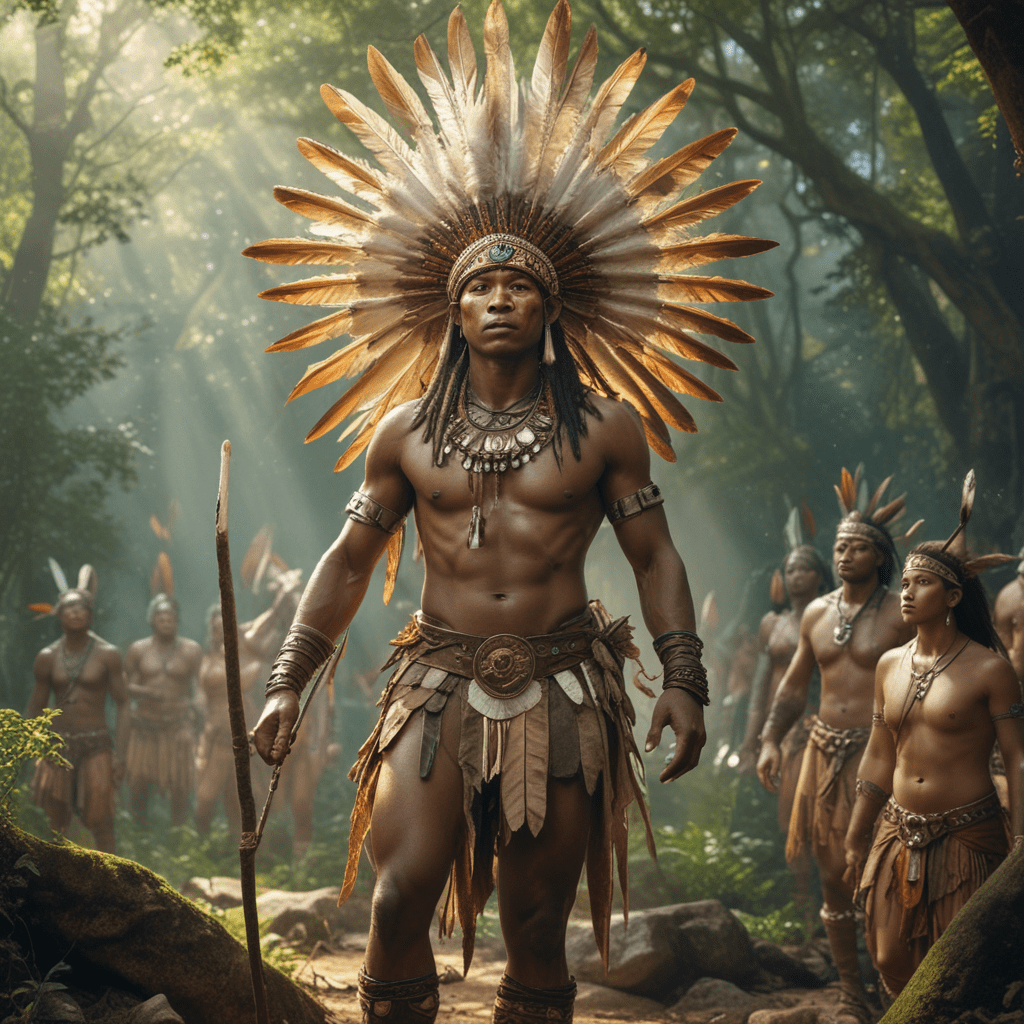Moral Myths That Shape Our Identity: Stories of Self-Discovery
I. Introduction
Moral myths are foundational narratives that encapsulate ethical principles, guiding behaviors and shaping identities both on personal and societal levels. These myths serve as touchstones for understanding right and wrong, influencing how individuals perceive themselves and their roles within their communities.
The role of stories in shaping personal and collective identities cannot be overstated. They provide context and meaning, helping individuals navigate the complexities of life. This article explores the significance of moral myths in shaping our identities, illustrating how they influence both personal journeys of self-discovery and broader societal norms.
II. The Concept of Moral Myths
Moral myths emerge from a combination of historical narratives, cultural traditions, and shared experiences. They often reflect the values and beliefs of a society, providing a framework for understanding moral dilemmas.
Unlike cultural narratives, which focus more broadly on the history and customs of a group, moral myths specifically address ethical questions and moral choices. These myths can significantly impact individual behavior, guiding decisions and shaping societal norms in profound ways.
III. The Power of Storytelling in Identity Formation
Storytelling has historically been a powerful tool for conveying moral lessons and understanding human behavior. From ancient myths to modern literature, stories have provided a medium through which moral complexities can be explored.
Psychological research indicates that narratives play a critical role in shaping self-perception. The stories we tell about ourselves influence our beliefs, values, and actions. Personal anecdotes, in particular, serve as vital components in the construction of moral beliefs, allowing individuals to connect their experiences with broader moral themes.
IV. Archetypes in Moral Myths
Within moral myths, certain archetypes frequently emerge, such as the hero, the villain, and the mentor. These archetypes resonate deeply with personal experiences and societal values, serving as templates for understanding moral actions and consequences.
- The Hero: Represents courage and perseverance, often overcoming great obstacles.
- The Villain: Embodies moral failure, serving as a cautionary tale.
- The Mentor: Offers wisdom and guidance, helping the hero navigate challenges.
Examples of these archetypes can be found in literature, such as in the works of Homer or modern narratives like superhero films, demonstrating their enduring influence on identity formation and moral understanding.
V. Case Studies: Personal Stories of Self-Discovery
A. Story 1: Overcoming adversity through a moral framework
Consider the story of a young woman who faced significant challenges in her life, including poverty and discrimination. Through her experiences, she developed a moral framework grounded in resilience and empathy. By embracing the archetype of the hero, she transformed her struggles into a source of strength, ultimately becoming an advocate for others facing similar challenges.
B. Story 2: The role of community and shared myths in personal growth
Another individual found solace and identity within a community that shared common moral myths. This collective narrative provided a sense of belonging and purpose, reinforcing the values of compassion and mutual support. As they engaged with others, their understanding of morality deepened, fostering personal growth and a commitment to social responsibility.
C. Story 3: Re-evaluating identity through the lens of moral myths
A third narrative involves a person who, after a life-altering event, began to question their long-held beliefs. Through introspection and engagement with various moral myths, they re-evaluated their identity and embraced a more nuanced understanding of morality. This journey of self-discovery underscored the fluidity of moral beliefs and the power of stories to facilitate personal transformation.
VI. The Intersection of Moral Myths and Cultural Identity
Cultural backgrounds play a significant role in shaping moral myths. Each culture has its unique narratives that reflect its values and ethical considerations, influencing how individuals within that culture perceive morality.
Globalization has led to an interesting interplay between traditional moral narratives and emerging global perspectives. As cultures interact, moral myths can evolve or blend, leading to new understandings of ethics and identity.
Case studies of different cultures:
- The importance of collective storytelling in Indigenous cultures, emphasizing community and nature.
- The role of Confucian teachings in shaping moral values in East Asian societies.
- The impact of Western narratives on post-colonial societies and their moral frameworks.
VII. Moral Myths in Modern Society
In contemporary society, moral myths continue to hold relevance, especially in the context of social issues such as justice, equality, and environmental sustainability. These narratives help individuals grapple with complex moral questions and societal challenges.
Digital storytelling platforms, including social media and blogs, have transformed how moral narratives are shared and understood. Individuals can now craft and disseminate their stories, reshaping collective moral understandings and fostering empathy across diverse audiences.
The potential for moral myths to inspire social change is significant. By engaging with powerful narratives, individuals can galvanize movements and advocate for justice, reflecting the ongoing evolution of moral beliefs in society.
VIII. Critiques of Moral Myths
While moral myths can provide valuable guidance, they also have limitations. Rigid adherence to moral myths can lead to dogmatism and exclusion, stifling critical thinking and the evolution of beliefs.
It is essential to recognize that moral beliefs are not static; they evolve over time as societies change and individuals gain new perspectives. Critical thinking plays a crucial role in navigating moral myths, encouraging individuals to question and reassess their beliefs in light of new experiences and information.
IX. Embracing Diverse Narratives for Self-Discovery
Integrating multiple moral perspectives enriches the journey of self-discovery. By exploring a range of narratives, individuals can gain a deeper understanding of themselves and others, fostering empathy and connection.
Encouraging personal reflection and exploration of diverse moral myths not only enhances individual identity but also contributes to a more inclusive and understanding society. Through this process, we can appreciate the complexity of human experience and the myriad ways in which stories shape our moral landscapes.



